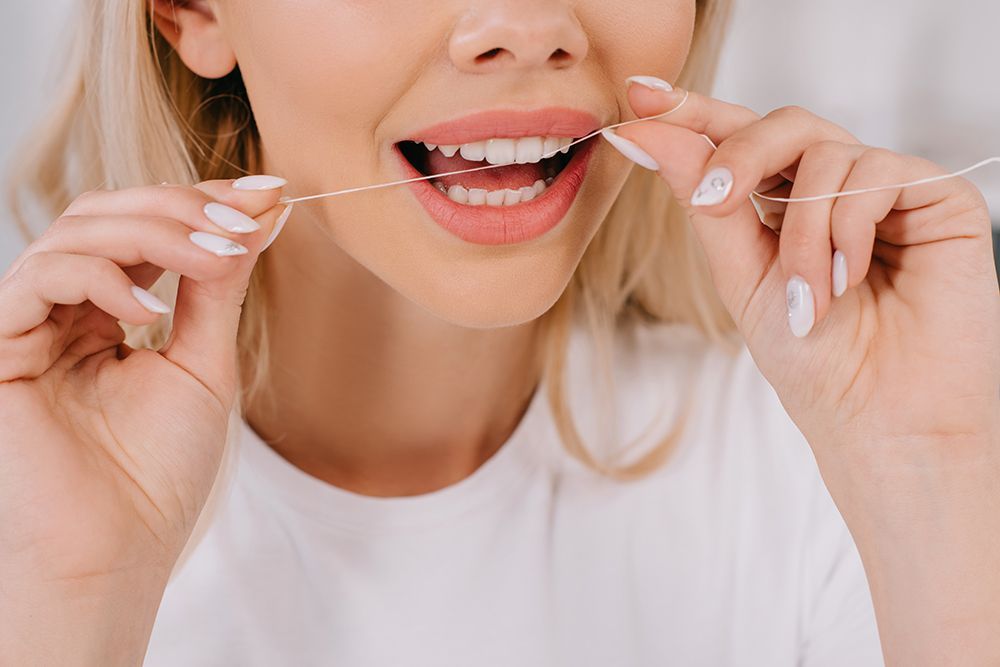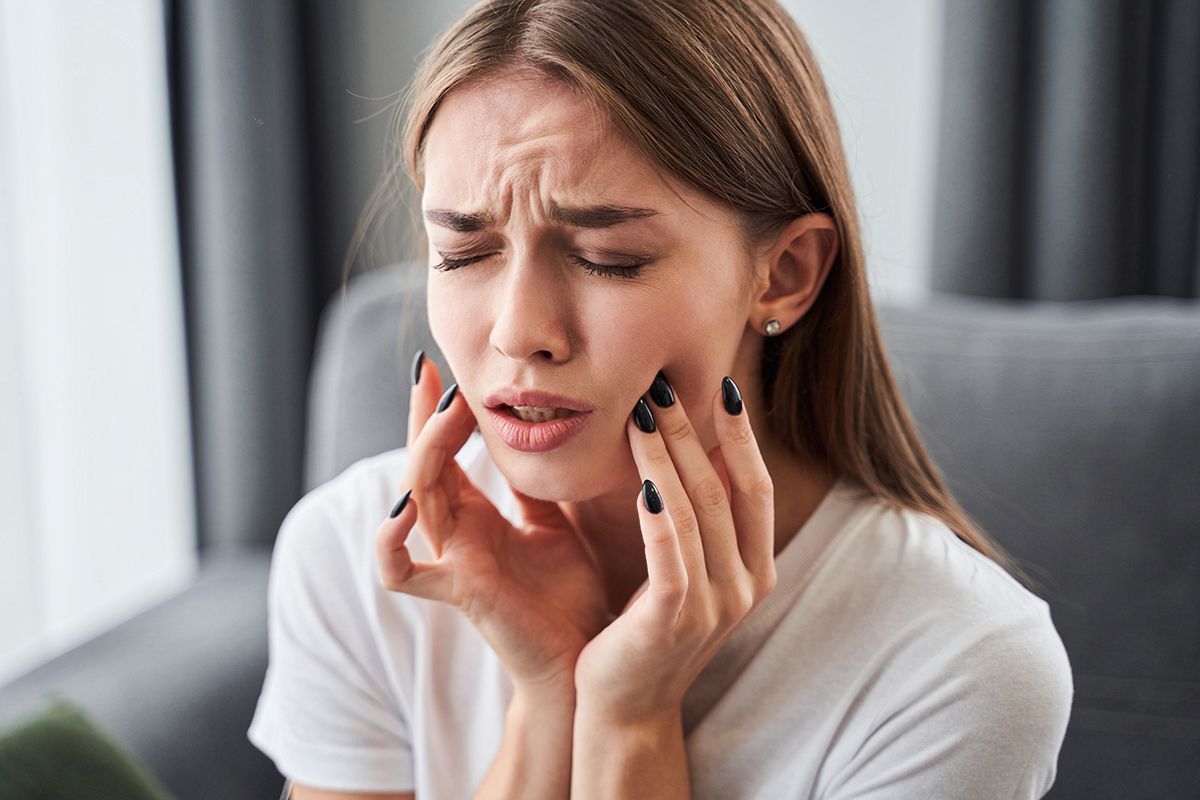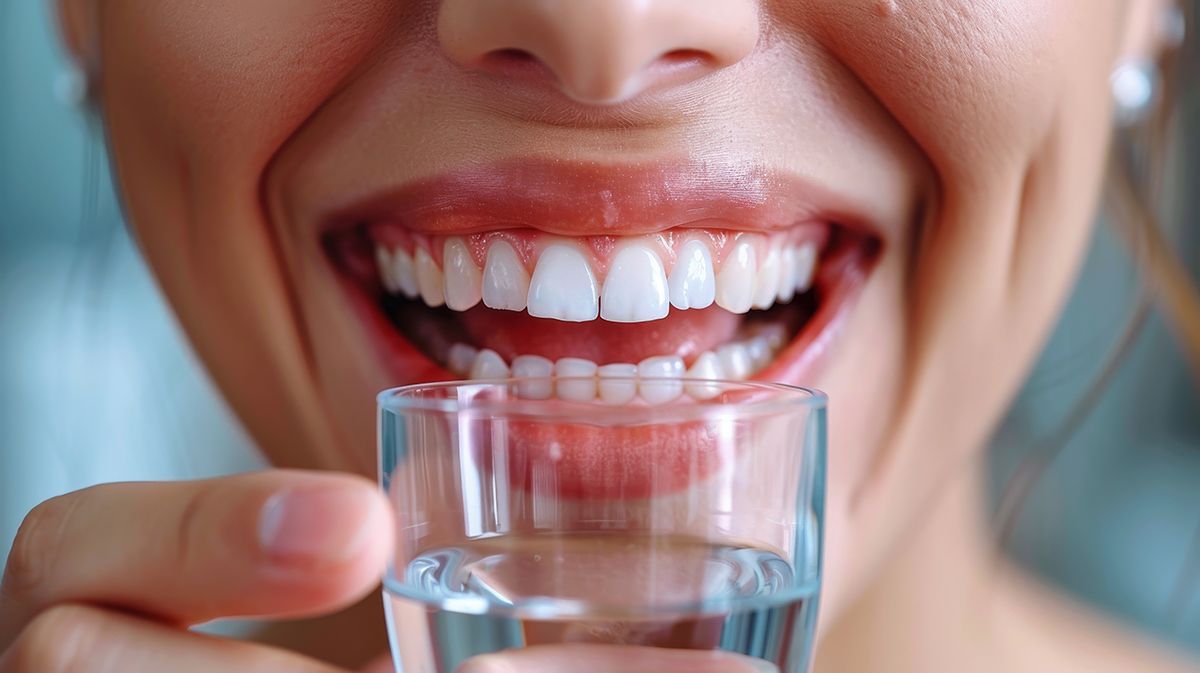Why is Flossing Important?
When it comes to oral hygiene, brushing often takes center stage. However, there’s another essential practice that many overlook: flossing. Flossing plays a vital role in maintaining oral health, preventing gum disease, and contributing to overall well-being. Here at Oadby Dental Clinic, we’ll explore the importance of flossing, debunk common myths, and offer practical tips to integrate it into your daily routine.
Suffering with
bad breath and gum disease? Book an appointment today!
Understanding Flossing and Its Role in Oral Health
Flossing involves the use of a thin filament, usually made of nylon or Teflon, to clean between teeth and along the gum line. These areas are difficult for a toothbrush to reach, making flossing an indispensable part of oral care. Here’s why it matters:
1. Removing Plaque and Debris
Plaque is a sticky, colorless film of bacteria that constantly forms on teeth. When you eat or drink, bacteria in the plaque produce acids that can erode enamel and cause cavities. Flossing removes plaque and food particles lodged between teeth, areas that are particularly susceptible to decay.
2. Preventing Gum Disease
Without regular flossing, plaque can harden into tartar, which irritates the gums and leads to gingivitis—the first stage of gum disease. If untreated, gingivitis can progress to periodontitis, a severe condition that damages the tissues and bones supporting your teeth. Flossing disrupts the buildup of plaque and tartar, reducing your risk of gum disease.
3. Reducing Bad Breath
Food particles trapped between teeth can decay, creating unpleasant odors. Flossing eliminates these particles, contributing to fresher breath. Coupled with brushing, flossing ensures that your mouth stays clean and odor-free.
4. Promoting Overall Health
Oral health is closely linked to overall health. Gum disease has been associated with systemic conditions like diabetes, heart disease, and stroke. By maintaining good oral hygiene through regular flossing, you can reduce inflammation in the body and potentially lower the risk of these conditions.
Ensure your dental hygiene is the best it can be – visit our specialist
dental hygienist and get your teeth professionally cleaned.

The Science Behind Flossing
Numerous studies highlight the effectiveness of flossing in maintaining oral health. Research demonstrates that individuals who floss regularly exhibit significantly lower rates of gum inflammation and bleeding compared to those who don’t. Moreover, a combined regimen of brushing and flossing is more effective at removing plaque than brushing alone.
Flossing also plays a critical role in preventing interproximal cavities, which occur between teeth. Since fluoride from toothpaste and water does not reach these tight spaces effectively, mechanical removal of debris via flossing is essential.
Common Misconceptions About Flossing
Despite its benefits, flossing is often misunderstood or undervalued. Let’s debunk some common myths:
1. "If I brush thoroughly, I don’t need to floss."
Even the most diligent brushing can’t clean between teeth or below the gum line. Flossing targets these neglected areas, complementing brushing for a comprehensive clean.
2. "Flossing is painful and causes bleeding."
Initially, flossing may cause minor discomfort, especially if your gums are inflamed due to plaque buildup. However, with consistent practice, your gums will become healthier, and the discomfort will subside. Bleeding is a sign that your gums need attention, not a reason to stop.
3. "Flossing takes too much time."
It takes just a few minutes to floss effectively. Investing this time daily can save you from lengthy and expensive dental treatments in the future.
4. "Mouthwash can replace flossing."
While mouthwash is a valuable addition to oral hygiene, it cannot mechanically remove plaque or debris from between teeth. Flossing and mouthwash serve different purposes and should be used together.
How to Floss Properly: A Step-by-Step Guide
Flossing effectively requires the right technique. Here’s a simple guide:
- Choose the Right Floss Select a floss that suits your needs—waxed, unwaxed, flavored, or unflavored. If you have braces or dental work, specialized flossers or floss threaders can help.
- Cut the Floss Cut about 18 inches of floss and wind most of it around your middle fingers, leaving a few inches to work with.
- Hold and Guide Hold the floss tightly between your thumbs and index fingers. Gently insert it between your teeth using a sawing motion.
- Curve Around Each Tooth Curve the floss into a “C” shape around each tooth and slide it gently under the gum line.
- Clean Both Sides Clean the side of one tooth, then the adjacent tooth, using a fresh section of floss as you move along.
- Don’t Forget the Back Teeth Ensure you floss the very back teeth, as they’re often neglected.
Alternatives to Traditional Flossing
- Floss Picks: Handy, disposable tools with a piece of floss pre-attached.
- Water Flossers: Devices that use a pressurized stream of water to clean between teeth.
- Interdental Brushes: Small brushes designed to clean between teeth.
- Soft Picks: Flexible, rubber-like tools for gentle cleaning.
These options can make flossing more convenient and comfortable, especially for individuals with limited dexterity.
Tips for Building a Flossing Habit
- Set a Routine Floss at the same time each day, whether morning or night, to establish consistency.
- Keep Floss Accessible Store floss in a visible and convenient location to remind yourself to use it.
- Start Small If flossing all your teeth feels overwhelming, begin with just a few and gradually increase.
Flossing often gets a bad rap as tedious or unnecessary. However, a shift in mindset can make a big difference. Think of flossing as an investment in your health—a small daily effort with substantial long-term rewards. Educating yourself and your family about its benefits can also create a supportive environment for maintaining the habit.
At
Oadby Dental Clinic, we know your smile is one of your most valuable assets, and flossing is a simple yet easy way to protect it. Beyond aesthetics, flossing contributes to the prevention of cavities, gum disease, and other health issues, saving you time, money, and discomfort in the long run.
If you’re not already flossing daily, start today. It’s never too late to adopt this crucial habit and enjoy the benefits of a healthier, brighter smile.
Remember: flossing isn’t just about keeping your teeth clean—it’s about safeguarding your overall health and well-being. So grab that floss, and take the first step toward a lifetime of oral health.



